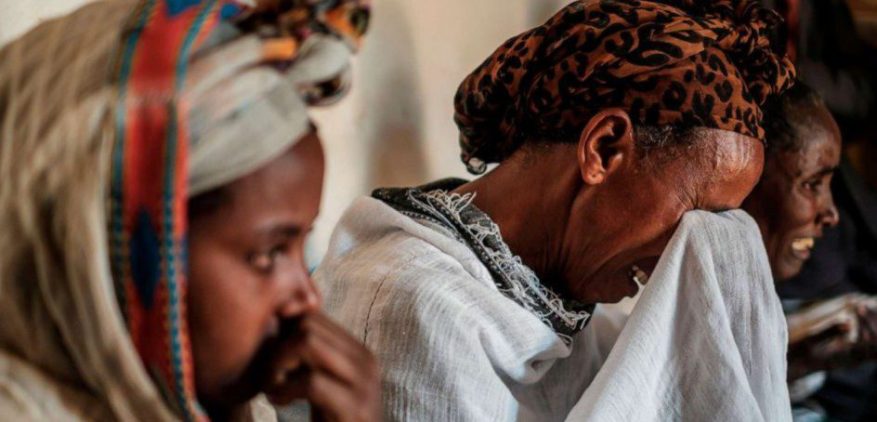Over 1400 women raped in Tigray


Among the many appalling human rights violations in the Tigray war, the stories of mass rape are by far the worst.
It’s difficult to pick the most disturbing story that has come out of the ongoing civil war taking place in Ethiopia’s Tigray region. There is the story of a 40-year-old woman who was repeatedly gang-raped by a group of 15 Eritrean soldiers and left on the side of a road. There is also the story of a 34-year-old woman who was raped by four Amhara forces and had a hot metal rod inserted into her genitals to burn her uterus. And then there is the story of a 65-year-old woman who was forced to watch as her two daughters were gang-raped and beaten in front of her.
A nun in the region, who chose to remain anonymous for security reasons, told The Guardian that rape is happening wherever Ethiopian and Eritrean troops go.
“Rape is starting at the age of 8 and to the age of 72. It is so widespread, I go on seeing it everywhere, thousands. This rape is in public, in front of family, husbands, in front of everyone. Their legs and their hands are cut, all in the same way.”
The Ethiopian government along with allies such as the neighbouring Eritrean government and Amhara regional forces went to war against Tigray on November 4, 2020. Victims report that most of the violence and rape comes from the Eritrean troops and Amhara forces from the neighbouring state of Amhara.
Medics on the ground have confirmed that they have been seeing cases of women and girls who have experienced sexual abuse and other forms of torture.
In a story covered by Reuters, a young mother was trying to get home with food for her two children when soldiers pulled her off a minibus in Ethiopia’s Tigray region, which later led to 11-days of a nightmare.
She said, she was repeatedly raped by 23 soldiers who forced nails, rock and other items into her vagina, and threatened her with a knife.
she was repeatedly raped by 23 soldiers who forced nails, rock and other items into her vagina, and threatened her with a knife.
Doctors showed Reuters the bloodstained stone and two 3-inch nails they said they had removed from her body.
Fasika, the health official, said at least 829 cases of sexual assault have been reported at the five hospitals since the conflict in Tigray began.
Those cases were likely “the tip of the iceberg,” Fasika said. Rape is underreported here in Ethiopia because it carries a huge stigma. Also, most of the region’s health facilities are no longer functioning, and travel between towns remains dangerous, he said.
Most of the women who have come forward are either pregnant or sustained severe physical injury from the rapes, Fasika said.
Ethiopia’s Prime Minister Abiy Ahmed acknowledged in a speech to parliament on March 23 that “atrocities were being committed by raping women” and promised that the perpetrators would be punished. He did not identify the alleged perpetrators.
There are rampant killings of thousands of civilians, mass rapes happening in and around Tigray with blocked humanitarian assistance leaving more than 5.2 million people in need of aid. There’s also a forcible displacement of around 1.7 million members of the Tigray ethnic group with the intent of destroying the Tigrayan race.
Women have been held in sexual slavery for weeks; survivors have described being violently gang-raped by up to 23 soldiers at a time — fracturing the pelvis and spine of some and sexually assaulting others with nails and rocks. One survivor, an 18-year-old woman named Mona Lisa, condemns these acts as ethnic cleansing, stressing that “soldiers are targeting Tigrayan women to stop them giving birth to more Tigrayans.”
In the light of such spine chilling crimes, what are the international organizations waiting for? There are gross human rights violations, crimes against women and humanity as the world watches in deft silence.
Act before it’s too late.
Featured image: ABC News
Written by Prakriti S
